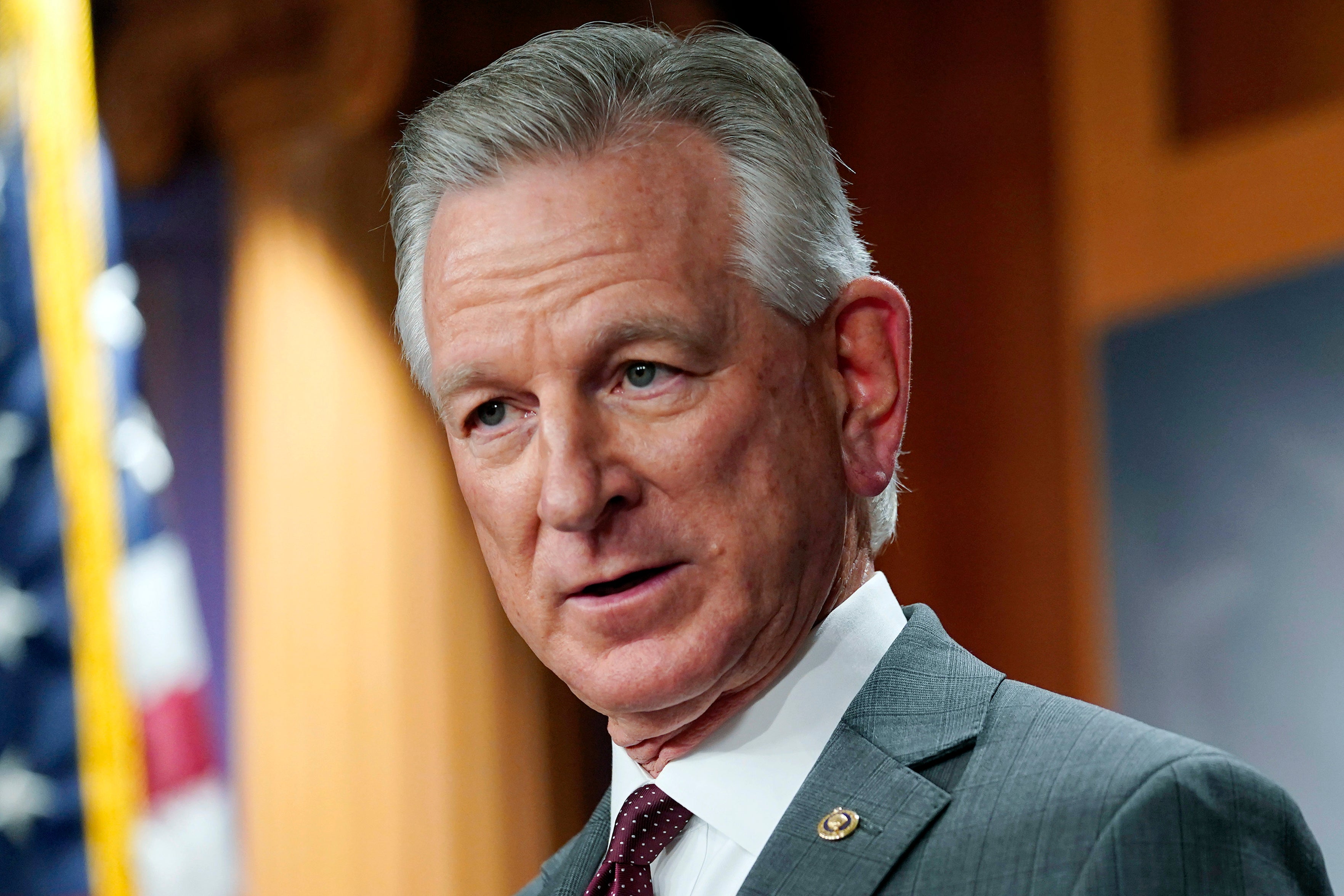Senator Tommy Tuberville blocks promotion of top military commander over defense secretary’s secret hospitalization
Defense secretary was hospitalized in Janury after complications from surgery for prostate cancer
Your support helps us to tell the story
From reproductive rights to climate change to Big Tech, The Independent is on the ground when the story is developing. Whether it's investigating the financials of Elon Musk's pro-Trump PAC or producing our latest documentary, 'The A Word', which shines a light on the American women fighting for reproductive rights, we know how important it is to parse out the facts from the messaging.
At such a critical moment in US history, we need reporters on the ground. Your donation allows us to keep sending journalists to speak to both sides of the story.
The Independent is trusted by Americans across the entire political spectrum. And unlike many other quality news outlets, we choose not to lock Americans out of our reporting and analysis with paywalls. We believe quality journalism should be available to everyone, paid for by those who can afford it.
Your support makes all the difference.Republican senator Tommy Tuberville is once again holding up the nomination of a key military official after he single-handedly blocked the promotions of hundreds of high-ranking officials last year as he protested service members’ abortion access.
Now, Tuberville is freezing the nomination of Lt. Gen. Ronald P. Clark to serve as the four-star commander of all Army forces in the Pacific.
The former Alabama football coach has accused Clark of hiding the hospitalization of Defense Secretary Lloyd Austin from the White House earlier this year, a move that could revive the months-long outrage over Austin’s health and provoke partisan attacks to the military before the presidential election.
“He was very close to Lloyd Austin, he’s on his staff, and he made the decision not to let the commander in chief Joe Biden or let anybody else know that he was in the hospital,” Tuberville told right-wing outlet Newsmax on Tuesday. “I’m not going to lift the hold until we have a whole review.”
He claimed that both Democratic and Republican lawmakers wanted answers.
Pentagon spokesperson James Adams told The Washington Post that additional holds on military promotions “undermine our military readiness.”
The Independent has requested comment from Tuberville’s office.

Last year, the senator blocked the promotion of hundreds of American military officials in protest of Pentagon policy to reimburse service members’ travel expenses for abortion care.
His months-long blockade left three branches of the military without confirmed leaders, a position that senior military officials warned had exposed the US to national security threats and put American service members in the middle of a politically caustic anti-abortion crusade.
At the time, Secretaries of the Army, Navy and Air Force accused Tuberville of “actively” eroding “the foundation of the foundation of America’s enduring military advantage” with a misguided protest. Navy Secretary Carlos Del Toro said Tuberville was “aiding and abetting communist and other autocratic regimes,” while Air Force Secretary Frank Kendall condemned Tuberville’s “unprecedented” blockade.
Tuberville’s latest maneuver could reignite the political debate surrounding Austin’s secret hospitalization in January, after he experienced complications from surgery one month earlier to treat prostate cancer.
Austin had been admitted to Walter Reed National Military Medical Center on January 1, four days before the Pentagon had made news of his stay public. Austin had transferred his duties to Deputy Defense Secretary Kathleen Hicks the day after he was admitted to the emergency room.
The Pentagon disclosed his hospitalization to Congress and the public on January 5. Even the White House was kept in the dark when the Secretary went to the hospital.
Pentagon officials insisted that at no point was leadership in doubt or compromised, and Austin later apologized for the delay, saying in a February statement that his diagnosis was “gut punch.”

“I want to be crystal clear: We did not handle this right. I did not handle this right,” Austin told reporters at the time. “I should have told the president about my cancer diagnosis. I should have also told my team and the American public, and I take full responsibility.”
hat matter has been under investigation by the Defense Department’s Office of Inspector General. A separate Pentagon review found in February that there was “no attempt to obfuscate” Austin’s diagnosis, and that Austin’s aides were concerned about breaching medical privacy laws.
“We need a full understanding of why he did what he did, and not inform the commander in chief of the problem,” Tuberville told Politico this week. “This is not just one person. I mean this is, Democrat and Republican wanting to know what the heck happened here … And the American people need the truth here. Why did we not have full disclosure of what happened? And so once we get that, we’ll be good.”

Join our commenting forum
Join thought-provoking conversations, follow other Independent readers and see their replies
Comments